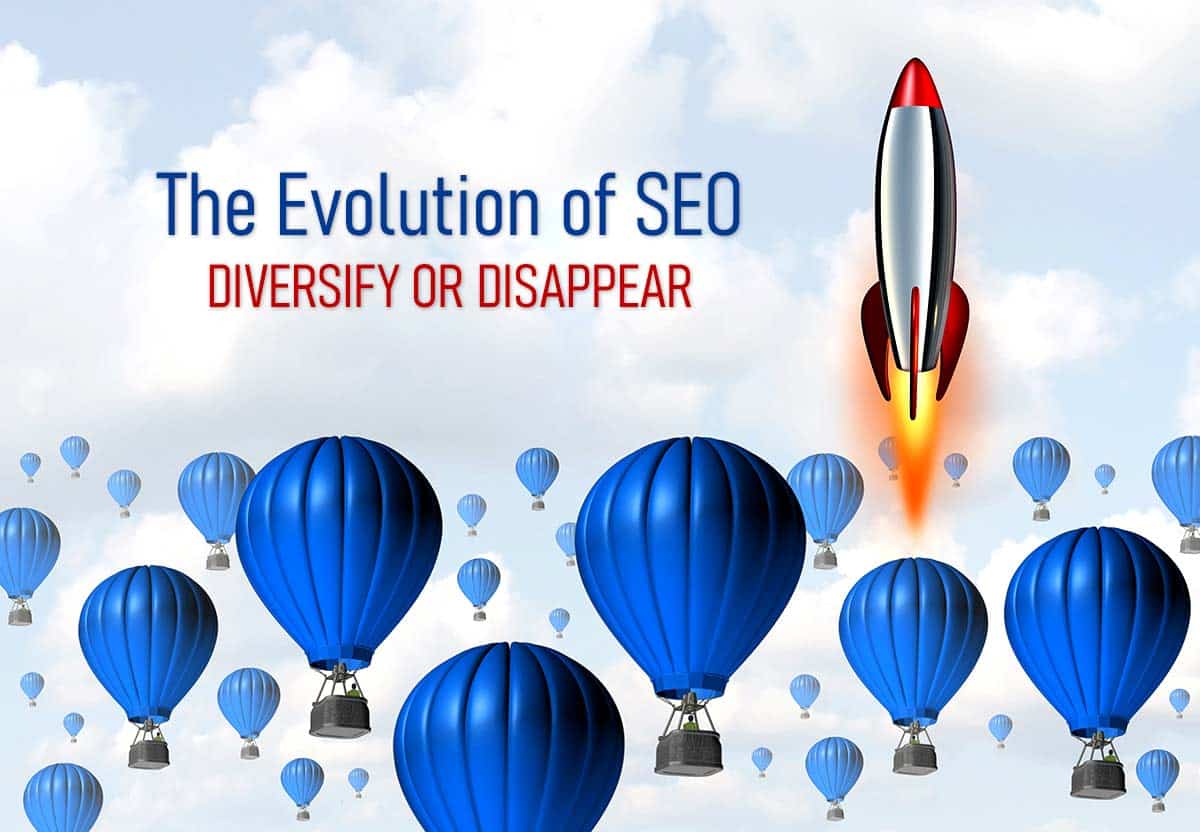What Business Owners Need to Know About SEO in 2025
The Evolution of SEO
Search engine optimization (SEO) has come a long way since the early 2000s. Back then, tactics like keyword stuffing, meta tag manipulation, and bulk directory submissions could easily push a website to the top of the rankings. But search engines—and searchers—have become significantly more sophisticated.
Today, SEO is about relevance, authority, and user experience. Google and other platforms use artificial intelligence to evaluate the quality and usefulness of your website content. Algorithms are constantly updated to better understand user intent, evaluate on-page experiences, and reward trustworthy sites.
🔸Stat: Google processes over 8.5 billion searches per day. (Source: Internet Live Stats)
In short, the bar has been raised. Businesses can no longer get by with outdated tactics. To remain competitive, you must adopt a strategic, data-informed approach to your digital presence.
Why Old SEO Tactics No Longer Work
If you still rely on SEO methods from five or even two years ago, chances are you’re falling behind.
- Keyword stuffing, or “over-optimizing,” is now penalized rather than rewarded.
- Short, generic blog posts are unlikely to rank against in-depth, helpful content.
- Low-quality backlinks can do more harm than good.
- A desktop-only website will struggle to compete in a mobile-first indexing environment.
And perhaps most importantly, focusing solely on Google search ignores the many new ways users discover content online.
🔸Stat: 53% of all website traffic comes from organic search. (Source: BrightEdge)
Search optimization must now be multi-faceted and tightly integrated with other digital marketing efforts.
What SEO Looks Like Today
Modern SEO is no longer a simple checklist; it’s a layered, interconnected system that touches nearly every aspect of your online presence. Revenue-focused SEO strategies today typically include:
- Technical SEO: Site speed, mobile-friendliness, schema markup, crawlability
- On-page SEO: Page structure, keyword placement, internal linking, UX/UI
- Content Strategy: Blog posts, landing pages, FAQs, videos, multimedia
- Off-page SEO: High-quality backlinks, online citations, partnerships
- Local SEO: Google Business Profile optimization, reviews, directory listings
- AEO (Answer Engine Optimization): Structuring content to appear in AI and voice search results
- Reputation and Trust Signals: Reviews, testimonials, brand mentions
- Analytics and Conversion Tracking: Ongoing audits of what’s working and what needs improvement
When these components work together, they create a long-term foundation for visibility and lead generation.
Key Areas to Focus On Now
Here are the essential building blocks for your SEO strategy in 2025:
✅ Search Intent and Content Strategy
Understand what your customers are really searching for and why. Go beyond keywords and consider the problem they’re trying to solve.
- Use tools like Google’s “People Also Ask,” Semrush, and Answer the Public
- Build content clusters around core topics to boost topical authority
- Write with clarity, empathy, and a focus on real-world usefulness
✅ Mobile UX and Core Web Vitals
Google prioritizes mobile-first indexing, so your site must perform flawlessly across all devices.
- Test with PageSpeed Insights or GTMetrix
- Compress images and remove bloated plugins
- Use a responsive layout that adapts gracefully to all screen sizes
✅ Local SEO
A well-optimized Google Business Profile can generate high-intent local traffic.
- Keep your profile updated with photos, services, hours, and posts
- Encourage and respond to reviews
- Make sure your Name, Address, Phone (NAP) info is consistent across the web
✅ Trust Signals
E-E-A-T (Experience, Expertise, Authoritativeness, Trustworthiness) is a key factor in Google’s evaluation process.
- Add author bios, link to credible sources, and display certifications
- Showcase testimonials and case studies
- Maintain an active social presence to support brand authority
Competitive Intelligence: Outsmart, Don’t Outspend
Competitive Intelligence allows you to understand how your top competitors attract and convert traffic so you can make informed decisions without wasting resources.
- Identify your top 3–5 competitors using tools like Semrush, Ubersuggest, or SpyFu
- Analyze their keywords, backlinks, blog topics, and traffic sources
- Spot opportunities they’re missing and fill those gaps with better content and offers
🔸Stat: 72% of marketers use competitor analysis to improve their SEO strategy. (Source: Semrush)
Pro Tip: Competitive research should be ongoing—not just a one-time audit.
Diversify or Disappear: Why Multi-Channel Matters
People discover businesses across a wide variety of platforms. If you’re only focused on ranking in Google, you’re missing massive opportunities.
- Social media: Facebook, Instagram, LinkedIn, TikTok
- AI tools: ChatGPT, Gemini, and other answer engines
- Email marketing: Nurture sequences, newsletters
- Review platforms: Google, Yelp, TripAdvisor, Trustpilot
- Local directories and niche aggregators
The goal is to be visible wherever your ideal clients are spending time.
Action Tip: Repurpose blog content into…
- Social posts
- Google Business Profile updates
- Email newsletters
- Short videos or audiograms
Search is Everywhere: Optimize for AEO and Beyond
Search is no longer limited to search engines. People are asking questions through:
- Voice search
- AI chatbots
- Smart assistants
- Search features within apps and social media platforms
That’s why Answer Engine Optimization (AEO) is on the rise.
How to Optimize for AEO:
- Add well-written FAQs to your website
- Use schema markup to help machines understand your content
- Structure content with clear headings and short, concise answers
- Build topical authority so AI engines select your content over others
🔸Stat: 71% of marketers say optimizing for featured snippets and answer boxes is part of their SEO strategy. (Source: HubSpot)
Pro Tips to Stay Ahead
🛠 Refresh your top pages and posts often
🛠 Use Google Search Console to guide your content focus
🛠 Perform Competitive Intelligence and Keyword Phrase Research quarterly
🛠 Check your NAP consistency across the web
🛠 Build topical authority with interlinked content hubs
🛠 Ask for reviews and feature them everywhere
🛠 Aim to get consistent high-quality backlinks every month
🛠 Build your email list as a long-term traffic asset
🛠 Use AI tools to ideate, outline, and test content formats faster
Final Thoughts
Modern SEO is more than just ranking on Google. It’s about building a strong, trustworthy, and visible brand across all digital channels. That means optimizing for humans and algorithms alike. It means publishing content that solves problems, earning backlinks through genuine value, and showing up consistently where your audience is looking.
It’s not about doing everything all at once. It’s about doing the right things in the right order and building momentum that leads to long-term growth.
Want help with your SEO?
👉 Schedule an SEO Audit today! We’ll analyze your site’s architecture, pinpoint problem areas, and give actionable recommendations to improve rankings and user experience. ⬇️
Why choose Accelerated Web Systems for SEO?
✔️ We believe in nuance, alignment, and consistent, relentless work. You are not just a number with us.
✔️ We dive deep into your unique business proposition, your ideal client persona, and your revenue goals.
✔️ We evaluate your current situation in the search engines from many angles to establish a benchmark before we start. Keywords, competition, reviews, Google properties, website speed, and website conversion rates all play a part in a successful SEO campaign.
✔️ We research, strategize, plan, and execute for short and long-term success.
✔️ You can count on our SEO services being comprehensive, clever, creative, and competitive.
✔️ We’ve been doing SEO and web design for over 20 years. We know what it takes to rank!



